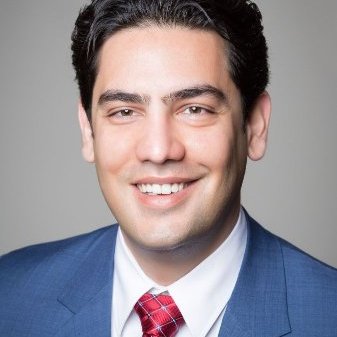You Should Control Your Own Health Care Data
Giving patients the power over who uses their data would benefit them medically and financially
If you have ever stayed at a hospital, visited a physician's office or filled a prescription at a U.S. pharmacy, your medical information – stripped of identifying data – is most likely collected, shared and analyzed for various medical and marketing purposes. Your data may have helped a pharmaceutical company sell more drugs, a researcher find a better treatment option for a disease or a government agency predict the next flu outbreak. This is done through a multibillion-dollar industry that feeds on your medical data and reaps millions of dollars from analyzing it, without asking your permission or sharing the resulting profits with you.
 Niam YaraghiTo protect patient privacy in this health care system, we make every effort to limit the exchange of identifiable medical information to only the parties that are directly involved in a patient's medical care. Although patients can still request their records be sent to others, they are never involved in the medical data-mining industry. Despite some concerns, lawmakers argue that as long as personal identifiers are removed from medical records, patient identity is protected, thus allowing companies to collect, exchange and mine heaps of de-identified medical data without patient consent by many different entities on a regular basis.
Niam YaraghiTo protect patient privacy in this health care system, we make every effort to limit the exchange of identifiable medical information to only the parties that are directly involved in a patient's medical care. Although patients can still request their records be sent to others, they are never involved in the medical data-mining industry. Despite some concerns, lawmakers argue that as long as personal identifiers are removed from medical records, patient identity is protected, thus allowing companies to collect, exchange and mine heaps of de-identified medical data without patient consent by many different entities on a regular basis.
But here is the problem: In the current system, patients have no control over what is seen by whom, nor do they reap all the economic and medical benefits their medical records may hold. This not only hurts patients, but also goes against the best interests of government and the health care industry. If patients were given the option to make informed decisions about their privacy and selectively disclose their identifiable medical information to the parties of their choice, the medical and economic value of their data would increase significantly. More importantly, patients themselves could receive a fair share of their benefits, both medical and financial...
- Tags:
- Alzheimer's Associations' Trialmatch program
- Alzheimer's disease
- anonymized health data
- consumer-mediated exchanges
- identifiable medical information
- medical data mining
- medical information exchange
- Niam Yaraghi
- patient power over healthcare data
- patient privacy
- qualified patients for clinical trials
- Login to post comments